Greg Godels and Paul Jay discuss the invasion of Ukraine, imperialism’s roots in global monopoly capitalism including the U.S. and Russia, and what activists should demand to end the war and avoid nuclear Armageddon.
To view Greg Godels article titled “Is Russia an Imperialist Country?” – That’s not the Right Question to Ask, please click this link – https://mltoday.com/is-russia-an-imperialist-country-thats-not-the-right-question-to-ask/
Paul Jay
Hi, I’m Paul Jay. Welcome to theAnalysis.news. In a few seconds, I’ll be talking to Greg Godels about his article, whose title “Is Russia an Imperialist Country?” – That’s not the Right Question to Ask. Please don’t forget there’s a donate button, a subscribe button, a share button, and all the rest. The most important thing is to come to the website. Maybe you’ll hit click donate, but most importantly, get onto the email list. Be back in just a few seconds.
In his recent article titled “Is Russia an Imperialist Country?” – That’s not the Right Question to Ask, Greg Godels writes, quote:
Excerpt
“Lenin warns, the attempt to separate imperialism from its capitalist roots destines anti-imperialism to ineffectuality– “petty-bourgeois reformism.” Moralistic anti-imperialism, what Lenin calls “the last of the Mohicans of bourgeois democracy,” collapses into pacifism– a posture good for the soul, but impotent against the schemes of the great powers.”
Paul Jay
Greg then writes:
Excerpt
“Today’s leftist celebration of a projected “multipolar” capitalist world is a further attempt to separate great-power rivalries from their roots in capitalist– specifically, monopoly– interests. Multipolarity was a feature of imperialism in the prelude to World War I.”
Paul Jay
Further down, Greg writes:
Excerpt
“Lenin leaves no doubt that a country (czarist Russia) can be a big player in the imperialist scramble for colonies (or spheres of influence) while remaining a less-than-robust capitalist country with remnants or foretells of other (non-capitalist) economic formations or features. In other words, their place in the imperialist system is not strictly determined by their place in the capitalist hierarchy– they can be a bright young capitalist star or a decadent, old star clinging to a brilliant past, while still playing a decisive role in the empire games.”
Paul Jay
Now joining us is Greg Godels. He’s a Pittsburgh-based writer who comments on current events, political economy, and Left politics from a Marxist Leninist perspective. His commentaries have appeared in the People’s Weekly World, Political Affairs, the Morning Star, and People’s Voice. So welcome, Greg.
Greg Godels
Thank you, Paul. It’s a pleasure.
Paul Jay
Okay, so, Greg, there’s a major disagreement in the global Left over the Russian invasion of Ukraine. I think it boils down to how one assesses what the greatest danger is to humanity at this stage of world history. In that sense, we must always keep in mind the danger of nuclear war and the climate crisis. If it is U.S. imperialism, then almost all political forces opposed to U.S. hegemony are, broadly speaking, in the anti-U.S. imperialist camp. In other words, a multi-polaristic global order is a good thing, and thus the Russian invasion is, at the very least forgivable and, to some, even desirable. So what do you make of the argument?
Greg Godels
Yeah, look, the argument is flawed. It’s flawed because U.S. imperialism is at the top of the pyramid. It’s the most powerful imperialist power in the world. No one can really rival at this time, but it doesn’t follow that there are now other imperialist powers that are very powerful and vying for the same position. It doesn’t follow that if, in fact, those powers say they side with Venezuela, or they side with Syria, or they side with some other socialist or progressive countries, that they are not imperialist. In fact, they may have a very strong imperialist interest in doing that. The argument is flawed. It’s just wrong. When you look at today’s events, I think it’s useful to find a historical parallel. That’s what good historians do, and it’s certainly what good Marxists do. I think the most telling historical analogy would be the lead-up to World War I.
Lenin, for example, was writing about the great powers. There were six mega powers at that time. Britain was at the top of the pyramid, and it was a competition between them. A competition for colonies at that time for raw materials and so forth. That competition led to World War I. My concern, of course, in writing this is what’s going on today, the rivalry between Russia as an imperialist power, it’s a capitalist country, and its got imperial interest. The United States is being played out in Ukraine. I think what Russia is doing is mimicking U.S. policy over the last couple of decades. I’m sure your readers, your followers, are familiar with Samantha Power and the doctrine of humanitarian interventionism, which we concocted as a justification for intervening in other countries. I think Putin is doing exactly that. He sees the concerns, the interest of the Russian-speaking people in the east of Ukraine, as something that he can then use and utilize because they are being attacked by the Ukrainian government as an excuse to invade. That’s how I see the invasion. So that’s my view.
Paul Jay
So talk about the more systemic argument Lenin made and how that applies to today.
Greg Godels
First of all, Lenin located imperialism and capitalism. When you talk about multipolarity in a conversation that the Left is having, they’re hailing the fact the U.S. is not an ascending imperialist power, but it appears to be perhaps a descending imperialist power. They handle that, and they see that as a good thing, which is a good thing. They see the rise of other imperialist powers or other powers that have an imperial interest as necessarily a good thing. If we have a multipolar world, that’s a good thing.
Stop for a moment and return to the lead-up to World War I. Again, you had the same kind of rivalries. You had the same kind of attempt to rise to the top and challenge the British Empire. What did it lead to? It led to World War I. It tragically led to World War I. If you know the history, you know that it was something as simple as an assassination in the Balkans. It was something as simple as Serbian nationalism. It was something as simple as the Austro-Hungarian Empire responding to that. Germany was dragged into that because of their alliance with the Austro-Hungarian Empire. The Czar had a relationship with Serbia and rushed in to fill the breach that led to a war, which led to the death of 20 million people.
So that’s my great fear. That’s what I see as the parallel, and that’s why I’m very concerned about one issue and one issue alone. And that is stopping this war. Because of Ukrainian nationalism, the anti-war movement has been essentially disarmed. You look around, and you see rallies for glory to Ukraine. You see rallies, and the Left is afraid to align with those people because they know that they’re right-wing nationalists. So you have virtually no movement in this country to stop the war. In Europe, you find in Greece, for example, the great trade unions, the Communist Party of Greece, massive demonstrations, and the stoppage through the port of NATO weapons to Ukraine. These are the kind of actions that Lenin envisioned before World War I. These are the kind of actions that Lenin spoke to the working class and said that’s what you need to be doing. Stop the war. Stop the bleeding. The losers, of course, are working people. They’re little people. They’re the losers in all of this. They’re dying. The Russians are dying. Ukrainians are dying, and hopefully, no others will be dying outside of that. Unfortunately, that is the direction things are leading.
Paul Jay
Well, before we get more into the systemic analysis, let me just pick up on something you just said. Ukrainian socialist activists that I’ve talked to, while they’re against Ukraine being in NATO, they are against their even being a NATO. They argue that there is no other way to fight the Russian invasion other than taking arms from NATO. While they understand people outside not wanting to advocate for NATO in any way, they don’t want people to say close down the arms. There isn’t an equivalent action taking place in terms of Russian arms.
Greg Godels
You can’t base it upon what other people are going to do. They have to do the best they can. The Left in Ukraine is being suppressed. It’s notorious. The Communist party in Ukraine is outlawed. Zelenskyy outlawed 11 opposition parties. There are no active opposition parties in Ukraine today. I know the Left tends to blow this up, but there is a strong ultrawide nationalist movement in Ukraine. It is a reprehensible one. It takes its whole raisons d’être from Stepan Bandera, who was a criminal and a Nazi collaborator. So there is that problem.
Lenin wrote in 1916. The war had already started when he wrote Imperialism. What he’s saying is reflecting on what the Left should have done. Unfortunately, the entire European Left, except Rosa Luxemburg and a handful of other German Marxists and Linen’s party, all sided with their nations. This led to the bloodiest war the world had ever seen to that date. So that can’t be stopped. That war has started. Russia started it. It was ill-advised. It was stupid. What his thinking was— like you and others, I’m sure I was caught off guard and didn’t expect him to do this. However, that war has started now. What can we do to stop it? I think that’s the question that anyone you have on your show must be asked. It’s pointless to go back and say who started it? Why did it start? At this stage, that’s behind us. How do we stop it? We stop it by—
Paul Jay
Well, let me say something. I think it is important to get into how and why it started because it does get into how you assess what Russia did and this whole question of imperialism. To take up this question, first of all, how does it end? First and foremost, I would say the pressure has to be put on the Americans to declare and the Ukrainians to declare they’re not going to be part of NATO. Get that off the table. It should have been off the table before the invasion because it’s clear Ukraine isn’t going to be allowed into NATO anyway.
Greg Godels
Well, an armistice would be appropriate at this particular juncture. That’s what everyone on the Left should be advocating, an armistice. Lock it in place, stop it, and then negotiate. We’re looking at World War I. That’s what we ended up with after 20 million were dead. We don’t want to get to that point. So our Left can only deal with this country. We often talk to people and tell them what they should do in their country, what the Ukrainians should do, and what the Russians should do. If I had my hope, the Ukrainian Left, what little of it is left that’s allowed to act, will be trying to stop the war. They should be saying, let’s get an armistice, and let’s negotiate. They should be pressing their government to negotiate. That’s what they’d be doing. The Russian Left should be doing that. Stop the war in its place, negotiate. Let’s get this bloodshed over.
What we should be doing is saying the same thing. This includes no armament. Don’t arm the belligerents. History will ask who started it. Just as we know, in Sarajevo, it started with an assassin, but in the end, how much did that matter? In the end, 20 million were dead. What did it really matter who started it? What mattered was the people who fought the war had the least to gain from it. What created the war was the arrogance of elites, of great powers. This had nothing to do with the people that lived in those countries and fought those wars and died. I think that’s the way we have to look at it today.
Again, that’s why I think the question you have to ask people, of course, you’ll have the discussion. Of course, you’ll have the discussion of how it started and who was at fault, and how do you weigh that? But that discussion should end, and people should say, what are we going to do to stop this war? I think that’s the position the Left must take. Again, you can see it. Go in the streets. Two weeks before the war started, I was out with 12 people holding signs saying no war in Ukraine. The Liberal Left didn’t join that demonstration.
Paul Jay
Okay, let me make an argument that the Ukrainian Left is making to me. I’m still making up my mind about these things. Here’s the argument they’re making. Here’s what they’re making. Why are you treating what they’re calling essentially a Ukrainian national liberation struggle against what they call Russian imperialism, and they say U.S. imperialism because they want an independent Ukraine. Right now, it’s the Russians who are actually invading, not the U.S. Although I certainly agree with the argument that the Americans helped provoke all of this. That said, why did you not call for no arming of the Vietnamese or any of the other national liberation struggles in the past? Nobody on the Left supported the national liberation struggles and said don’t arm these struggles in order to help end the war. The Ukrainians are saying, why are you saying that about us?
Greg Godels
Right, and that was a national liberation struggle. This battle in Ukraine is not a national liberation struggle.
Paul Jay
Well, they say it is. They say the Russians are trying to essentially extinguish the Ukrainian nation. I’m talking about the Left, not the Right. No doubt, much of this struggle against the Russians is led by the Ukrainian right-wing oligarchs, and the Nazis are out in the field, but they’re not the only ones. The Ukrainian leftists are making the argument to me that this is also a people’s opposition.
Greg Godels
Once you invade a country, let’s suppose that in Donbas, most of the people who are Russian speaking did want to ally with Russia. Putin stupidly starts a war, and then the Russian Army is on their soil and is disrupting their lives. The number of people that are chased out of Ukraine who are trying to stay alive, internal and external migrants, it’s incredible. It’s ugly. So, of course, they’re rallying now around Ukraine. I understand that. When we look at how we can stop this, we’re going to have to go beyond the blame game. We’re going to have to go beyond deciding who’s bad and who’s good and stop the war. Stopping the war is what we must do. That’s where we are today. It’s a death dealing war.
Would you agree, Paul, as of today, it looks as though the Russians are going to take Donbas, and they’re going to stop? Obviously, it looks as though they were stopped in Kyiv, but it looks like they’re going to take Donbas. They’re going to have what they claim was their goal at this particular time.
Paul Jay
Well, I’m going to argue your thesis back to you. This is a contradiction between more powerful imperialism and what some people are calling sub imperialism. Certainly, the more powerful imperialism, the United States, and to a large extent its European allies, although not quite as much. They, I think, probably want this war to go on for a long time. I think they want to weaken and bleed the Russians as much as possible. They didn’t expect this invasion; I don’t think. Even though they kept saying it was going to happen, I think they were somewhat surprised it actually did. Everyone seems to have been surprised. They think they have their foot on Putin’s neck now. These are the people who slaughtered a million people in Iraq. They’re not averse to civilian deaths. So how many Ukrainians die does not bother the Americans very much. Once you’ve defined something as collateral damage, you can forget about it. This has been the case since the firebombing of Japan, the nuclear bombing of Japan, and the firebombing of Hamburg. The American war machine does not mind killing civilians. This is right ingrained. The same thing goes for the Russian. Russians did exactly the same thing. They didn’t mind killing thousands and thousands of people in Chechnya, and they don’t mind killing people in Ukraine.
All that being said, yes, I think he should and probably will take Donbas, defend this land quarter to Crimea, defend Crimea and call it a day. Now the thing is, I don’t know that the Americans will even allow the Ukrainians to accept that as an end. In terms of the Ukrainian oligarchy, the pro-Western Ukrainian oligarchy is making a lot of money out of all this. All the money and weapons pouring into Ukraine, I’m sure they’re getting— what does the mafia call it? A taste of all that inflow of money. Of course, the arms company in the U.S. and other places are making a total killing out of all this. On the Russian side, I think I saw the number 30% of Russian industrial jobs are in the military-industrial sector. Of course, the fossil fuel prices are through the roof. I don’t see a logic for the invasion in the first place.
The defense of Donbas, they keep saying— I hear three numbers about how many Ukrainian troops were amassing to invade Donbas. The head of the Russian Communist Party says it was 150,000 Ukrainian troops were about to invade. [Sergeĭ Viktorovich] Lavrov says 120,000 Ukrainian troops were about to attack Donbas. Now the number being thrown around by people defending the Russian invasion is 60,000 Ukrainian troops. So I don’t know, in fact, anywhere, because the actual monitors, the OSCE [Organization for Security and Co-operation in Europe] monitors, I can’t find a report from them.
Viewers, if you’ve got such a report, send it to me. The data on how many people in Donbas were killed by the Ukrainian Army between 2018 till the end of 2021, just before all this began, was 310 people in that entire period killed by Ukrainian armed forces of civilians in Donbas. As I said, I’m quite happy to change my mind on all this. I’m just looking at the data that’s available. It does not seem there was an imminent threat to Donbas, which leaves you with this. Putin had imperial designs and believed that he could do this as another Crimea. The ultimate objective probably was the Donbas region and the land quarter to Crimea. This probably was the real objective. I don’t know that it ends there because, as I say, I don’t know if the American and the Ukrainian oligarchy will let it.
Greg Godels
You want to grab some people on the Left and shake them and say, look, you’re thinking is 20th-century thinking. You’re still thinking as though the Soviet Union exists. You’re still thinking as though there’s a cold war going on, and there are two poles out there. One is socialist, and one of them is capitalist. If you’re thinking that way, you’re got to go back to great power thinking. You’re exactly right. I couldn’t agree more with you. Russia operates like a great power.
You mentioned that little piece in my article in which I talked about Russia in 1914 as being kind of a ten-pot capitalist country, yet it was a great power operating in the imperialist system. And we again have an imperialist system. The kind of glue and unifying force has been up until now, U.S. triumphalism. The U.S. was running the show and dictating the rules of the game. Putin says, well, look, I know what the rules of the game are. I saw them in operation. I saw how the U.S. goes into a country, into Yugoslavia and dismantles the country because they’re saving the people. They’re saving the Muslims. They’re doing this. It was all BS.
So he has his BS now, which you’ve cited in the case of Ukraine. Remember, Ukraine is a proxy country. Let’s not elevate it into what it’s not. Ukraine, before 2014, had a right-wing government. Then it had a Russian-oriented government, but hesitant, didn’t know whether it was going to go which way. Then there was a coup, and then there was the new government. It doesn’t have a legitimate government. It doesn’t represent the people of Ukraine in any way, shape or form. You can’t have a government where eight years ago, there was a coup deposing the President. You can’t have that government and say it’s legitimate. We’re faced with an awful situation right now.
Paul Jay
Okay, but wait a second. Over 70% of people voted for Zelenskyy, including many people in Donbas, because he promised to have a peaceful resolution. Now, he didn’t follow through, no doubt, and he was down to something like 24% in the polls. It’s certainly as legitimate a government as the American government, which is a total manipulation by the American oligarchy.
Greg Godels
What could you [inaudible 00:23:17]
Paul Jay
Well, that’s the standard. That’s supposed to be the Democratic standard, and certainly, Putin’s government is no more legitimate. So all these elections of all the countries involved, and what we’re talking about is mostly elections amongst the elite [inaudible 00:23:38].
Greg Godels
When you had a King George in England, and you had [inaudible 00:23:45], they’re all cousins, for Christ’s sake. At that time, you had all these people operating. The illegitimacy of the people making decisions was apparent to everybody. Today, it’s not so apparent. I think it’s apparent to you. It’s certainly apparent to me, but that’s the reality. So again, you have to use the example of pre-World War I. The kind of classic imperialism, that’s the era we’re in.
Paul Jay
Well, let me restate the Multipolarista argument again. As one of the people who advocate it said on a podcast I heard recently. The world is now divided into two basic camps. The socialist countries, and he defined these as Venezuela, Nicaragua, Cuba, and China. I think he included North Korea, and then there are some capitalist countries allied with that camp. He sees Russia as allied with socialist China versus U.S. imperialism, which is the main enemy of the people of the world. So this Multipolarista, multipolar world, which has China at the center of it, is a good thing. A stronger Russia is a good thing. Again, it’s another center of resistance to the U.S. empire. The person I’m thinking of actually called the Russian invasion a mistaken tactic, which I find to call the slaughter of thousands of people a mistaken tactic, almost sociopathic. At any rate, there are a lot of people making the multipolar argument. They’re not defenders of the Russian invasion, but they think that the U.S. NATO alliance is the bigger picture.
Greg Godels
Well, it is. You view multipolarity as a goal. The U.S. is a bigger danger. We know that. It’s indisputable. It doesn’t follow; again, the logic is flawed, that we want a multipolar world. How can that be advantageous? It wasn’t advantageous in 1914 when Germany allied with Austria-Hungary. You had Russia allied with France and Great Britain. You have the U.S. come in later. These were imperialist countries with their own narrow interest, but they had formed coalitions against one another, and it led to a massive war. People have to understand that logic. They have to go read Lenin again and understand that logic. The notion of what they’re fundamentally doing, Paul. They’re fundamentally failing to see that capitalism is at the root. If you have five countries that are now vying with the United States, but they are capitalist countries and they have imperialist interests, and they exercise those interests, supporting that multipolarity doesn’t get you anywhere. You still have an imperialist system based upon capitalism. It’s sort of like neoliberalism. I don’t want to get too far afield, but in the political arena, people say we got to fight neoliberalism. Neoliberalism is bad. Neoliberalism is a form of capitalism. Do away with it, and you still have capitalism. I think that’s what people have lost touch with. So I argue that what we have to do is go back to being socialist. We need to go back to studying people like Lenin and seeing how the capitalist and the imperialist systems function, how they are the same.
Paul Jay
Well, part of this question, I think, comes back to something we were touching on before. What is actual solidarity, real solidarity with the Ukrainian workers? What does it mean? What does it mean? And I’ll go back to the argument again. This is the Ukrainian Left. I’m talking about socialism. I’ve interviewed a couple already. I’m going to interview another one. A lot of these people that are supporting Russia hate the fact that I’m giving a platform for this section of the Ukrainian Left to speak. Tough luck. These are the people that are actually in the streets dealing with a war. The people attacking and critiquing me are sitting in front of their computers in the comfort of their houses.
They are saying that too much of the Left analysis is removing the agency of the Ukrainian working class and working people. I would add to that the agency of the Ukrainian elites because the Ukrainian elites could have declared no NATO before the invasion. They’re not going to get into NATO. It was clear they would never have a consensus amongst the NATO members. Never, may be an exaggeration. In any foreseeable time frame, France, Germany, Turkey, and many NATO countries before this invasion were not going to allow Ukraine into NATO. Even if the United States was doing what they call an almost NATO by arming Ukraine to such an extent, there’s still not an article five, and that’s a big deal, as we can see now.
So the Ukrainian Left is saying that they are fighting imperialist aggression, and they’re going to have to fight their own oligarchy. They have to do both. But right now, they have to deal with the Russian invasion, and people need to be able to support that fight. Now, if I was there, if I was Ukrainian, maybe I would have said, you know what, instead of this armed struggle, why don’t millions of us sit on the highways and block Russian tanks? I don’t know that the militarization of things so quickly was the best choice. Let me finish. But I don’t know that anyone saying that would have had any influence anyway. And two, at this point, the multipolar world is not a matter of choice either. It exists objectively. It’s a question of what kind of solidarity we give to people who are fighting non-U.S. imperialism, imperialism. It comes up in different places.
You have somebody like Gilbert Ashkar, who is an academic and a progressive activist in England. He argues very strongly that we should vigorously support the arming. No NATO troops in Ukraine, but support the arming of Ukrainians fighting the Russian invasion. Again, I’m on the fence, at the moment, on that exact point, but I’m also quiet about it. Who am I to tell Ukrainians who are fighting for their lives where they’re going to get their weapons?
Greg Godels
I appreciate your thoughtfulness because we should all be thoughtful, and we should hold off. We shouldn’t stomp our feet and say we know the answers. I don’t think that. We have to advocate strongly for what we feel, and you’ve done that. I want to go back to something you started with, and that was Zelenskyy’s election. Zelenskyy did win 70% of the election, and he did it on the popular platform you outlined. That’s what the Ukrainian people wanted, but they didn’t get it.
Paul Jay
Right.
Greg Godels
They didn’t get it because of the deal that Zelenskyy made to go to NATO, to go to the U.S., and—
Paul Jay
Well, I think also they didn’t get it because the far-right is so strong in Ukraine. They probably would have overthrown Zelenskyy if he actually tried to follow through.
Greg Godels
What does that say about the country? What does it say about the country? What it says is if we had an armistice in place and the Russians had to occupy Donbas, the solution of Donbas would occur based on what the people in that area wanted. If they didn’t want the Russians there, they would then resist them and fight them. We would isolate that problem to that. That’s a national liberation front if that’s the case. Or if they’re happy with it, they’re happy with it. Then we can conclude that democratically, even though it’s through the back door democracy, they have spoken about what they want. We’ve allowed these processes to play out. We can’t think here, in the United States, for these folks. We can understand why Ukrainians would want to defend their country. Put aside all their differences, and when the Russians are there, they want to defend their country. I don’t think we should aid in the escalation. Look, the Ukrainians aren’t going to defeat Russia. Does anyone think that the Ukrainians are going to defeat Russia just militarily, just objectively?
Paul Jay
I think the Americans are talking that way because they want the war to go on forever.
Greg Godels
Exactly. And you said it earlier, and you couldn’t be more right. The goal of the United States, in this case, is to drag this on forever. The scariest thing is that we have a man whose faculties are being challenged daily. A man who’s really quite old and hasn’t shown a lot of insight and a lot of gumption in the past, standing between Victoria Nuland and [Antony] Blinken, who would push this thing forward. [Chris] Coons in the Democratic Party said to send troops. That’s the guy that’s the roadblock to an all-out war.
Paul Jay
Yeah. So far, Biden, at least, has been against the no-fly zone, which is something because you’re right. There are a lot of forces in the U.S. power structure that would have a no-fly zone. The danger of nuclear war couldn’t be greater.
Greg Godels
Oh, my God. Exactly. So I think we have to prioritize our concerns. I think stopping this war in place is important. Minsk 2, Zelenskyy made an error. Why he did it, I don’t know, but he would not allow that to be implemented. That was a big mistake. It got the Russians all riled up. They were wrong to do what they did. Can’t we agree on these things?
Paul Jay
Alright, so let’s sum this up here a little bit. We mostly agree. I think if you’re talking about the moment we’re in, if anyone wants this war over, being if the Americans, if the West Europeans, but also the Ukrainian government and first and foremost Ukrainian government, the onus, I think, is even more on them. A declaration of no NATO, an acceptance/acknowledgement of the fact that they’re not going to be retaking Donbas. Certainly not the two areas of Luhansk and Donetsk. At least these areas have, it seems, clearly articulated that they don’t want to be part of Ukraine. There should be an internationally supervised referendum. What do they really want? There is now reporting coming out of those regions that even though they wanted to be independent, they don’t support the Russian invasion. I have no idea what the truth of all this is. The actual, what’s going on in the battleground, all you can expect is pretty well, everybody’s lying. I have no doubt that the Russians, I have no doubt based on as much information as one could have, the Russians are committing war crimes. I’m pretty sure the Azov Nazis are committing war crimes as well.
There’s nothing new about this type of fighting that war crimes get committed on both sides. There also seems to be a real people’s resistance to the invasion who are anti-NATO, although they’re quiet about it now. The same people who were declaring Ukraine should declare no NATO prior to the invasion. They’re not front and center against NATO right now because otherwise, they would have no arms. They are for a progressive form of socialism. They want to nationalize all the assets stolen by the Ukrainian oligarchy as part of a post-war Ukraine. I don’t think they have the power to do it. Who knows in this kind of situation. Once people have been fighting like this, what they might demand, whether something really progressive emerges out of it, the thing is, the outline for a peace agreement has been clear from day one. It’s both the Russians, the Ukrainians, the Americans, and NATO that do not seem interested in a peaceful resolution.
Greg Godels
We should judge who is willing to sit down and talk. I know sometimes Putin says we don’t want to talk anymore. Talking is over. When he’s wrong, we have to insist that they talk. But Zelenskyy has done the same thing. Well, if that’s the conditions they’re going to impose, I’m not going to talk to them anymore. So we need to force that on both parties. We need the UN [United Nations] involved. The UN should be talking about peacekeeping and how we can ensure an armistice, peace, and guarantee that.
Paul Jay
Well, you know what? One thing we could demand of the American government, for whatever our demands are worth, which doesn’t seem very much. At any rate, an absolute freeze on all arms to Ukraine in exchange for a ceasefire and an exchange for real negotiations. But I have not heard a word of that. The Americans just want to pour more arms into Ukraine.
Greg Godels
Right. You just did negotiating. I mean, that’s what negotiating is all about, and that’s what we should be doing. We should be in the streets, and I know it’s hard because this pro-Ukrainian nationalism has kind of dominated the streets, waving the flag and glory to the—
Paul Jay
Well, the anti-Russian mania is like isolating Russian opera singers and hockey players. It’s insanity. It’s as bad or worse than the height of McCarthyism.
Greg Godels
What struck me was the University of Florida, supposedly an educational institute. They had a Karl Marx study room, and they changed the name of it as though Karl Marx had something to do with Putin’s Russia. It has nothing to do with Putin’s Russia. That’s the insanity of it. It’s stunning.
There are things we can do, and I think we should be doing. We should put that ahead of the discussion the Left is having because it’s really vitriolic. I mean, people really, as you said, old friends are fighting with each other. I had a conversation with a friend just a few days ago, and we don’t see eye to eye on it, but we got to work through that, and we got to focus on stopping this war. That’s what we got to focus on. That’s what we have to get to. I’ll be interested; I will watch your interview with the Ukrainian leftist.
Paul Jay
There is something that, in some ways, is more important, and that is avoiding nuclear war. Nuclear war is not going to be good for Ukrainians either. If U.S., NATO, and West Europeans want to push this all the way, those forces that want regime change in Moscow and all the rest. If they want to create an even more desperate Russia and a Russia that feels like its very existence, that means the existence of the Russian State, because that’s how those that lead that State identify their existence, as do the American elites and others. But if they get pushed too far into a corner here, anything, either deliberate or accidental, so many things could trigger a nuclear armageddon. Ukrainians, especially those asking for a no-fly zone and direct NATO involvement, even those that want a continued and increased militarization rather than an emphasis on de-escalation, be careful what you wish for. There is no Ukrainian national liberation if there’s no world. The same thing goes for Russian nationalism, American nationalism, and all the goddamn horrible, poisonous nationalisms. There won’t be any of it. There will just be smoke and fire.
Alright, thanks for joining me.
Greg Godels
At that point, that’s well said. Thank you.
Paul Jay
Thank you very much. Bye.
Podcast: Play in new window | Download | Embed
Subscribe Apple Podcasts | Spotify | Android | iHeartRadio | Blubrry | TuneIn | Deezer | RSS
Never miss another story
Subscribe to theAnalysis.news – Newsletter
Greg Godels is a Pittsburgh-based writer who comments on current events, political economy, and Left politics from a Marxist Leninist perspective. His commentaries have appeared in the People’s Weekly World, Political Affairs, the Morning Star, and People’s Voice.
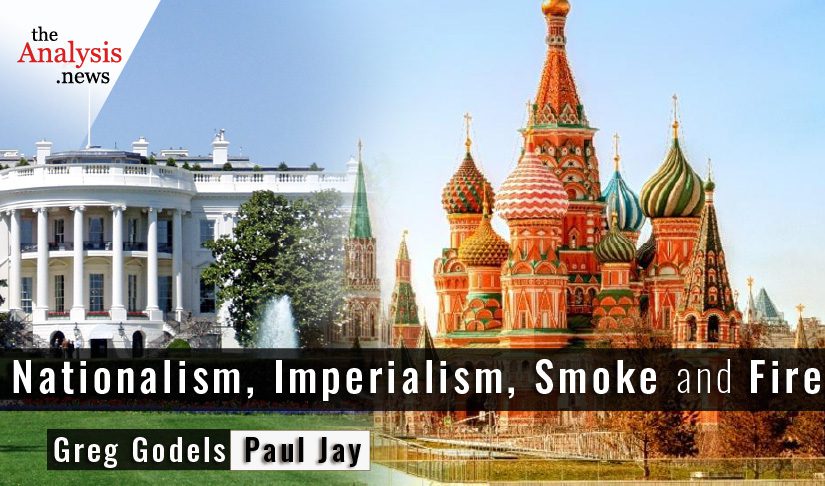


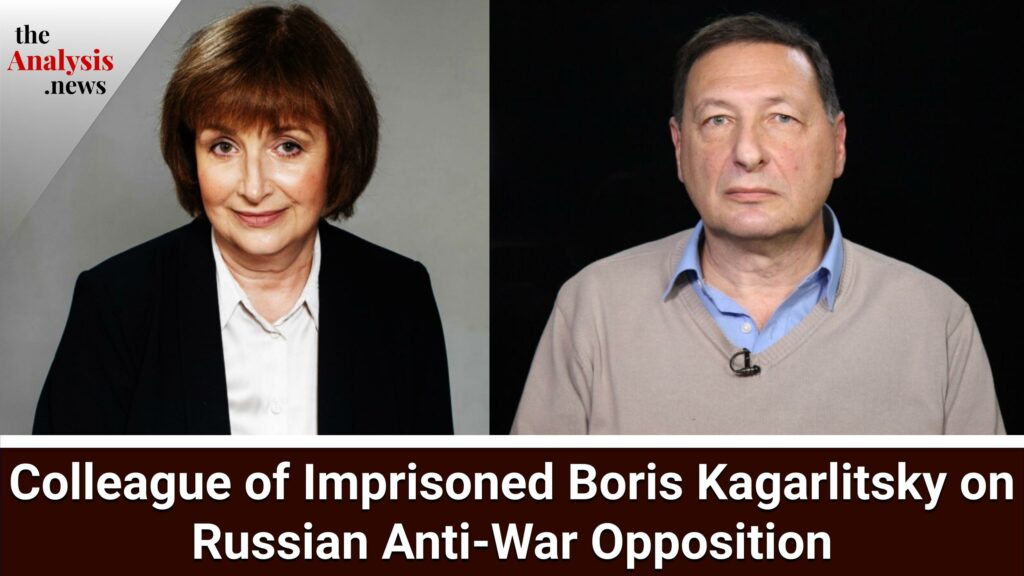
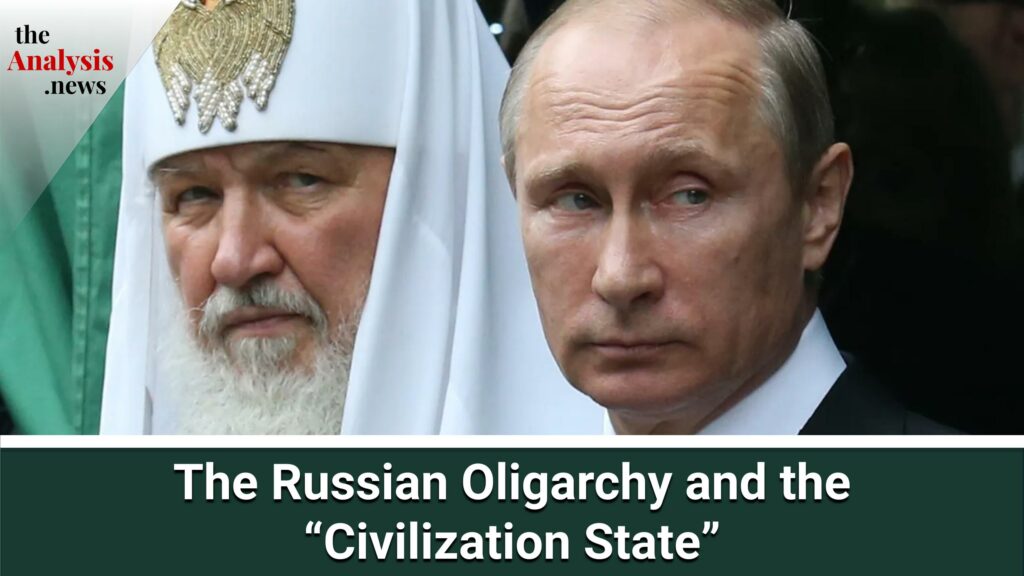
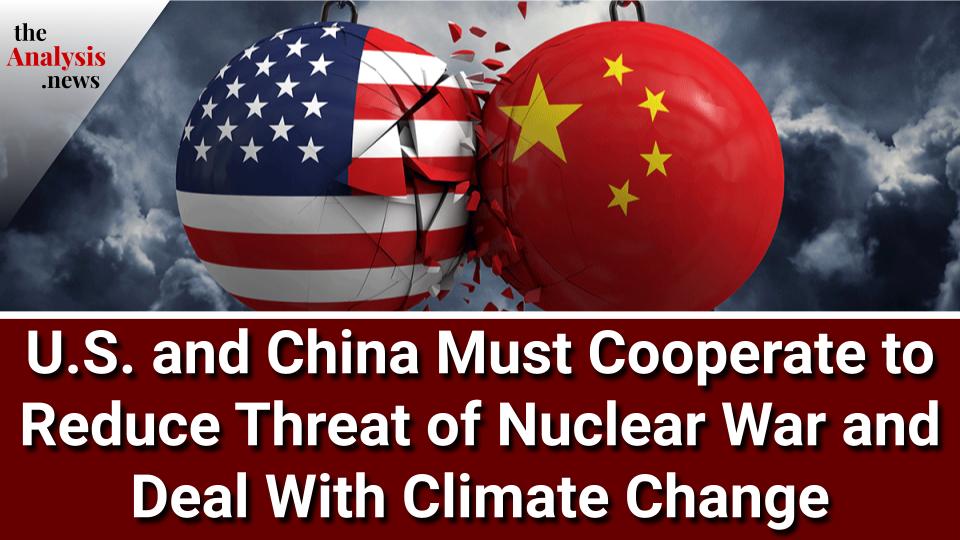
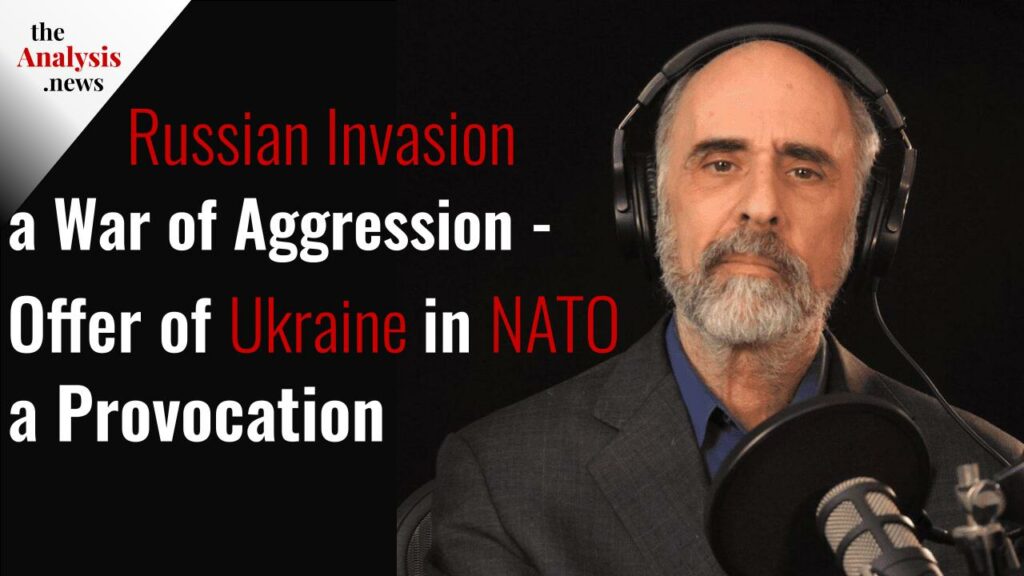
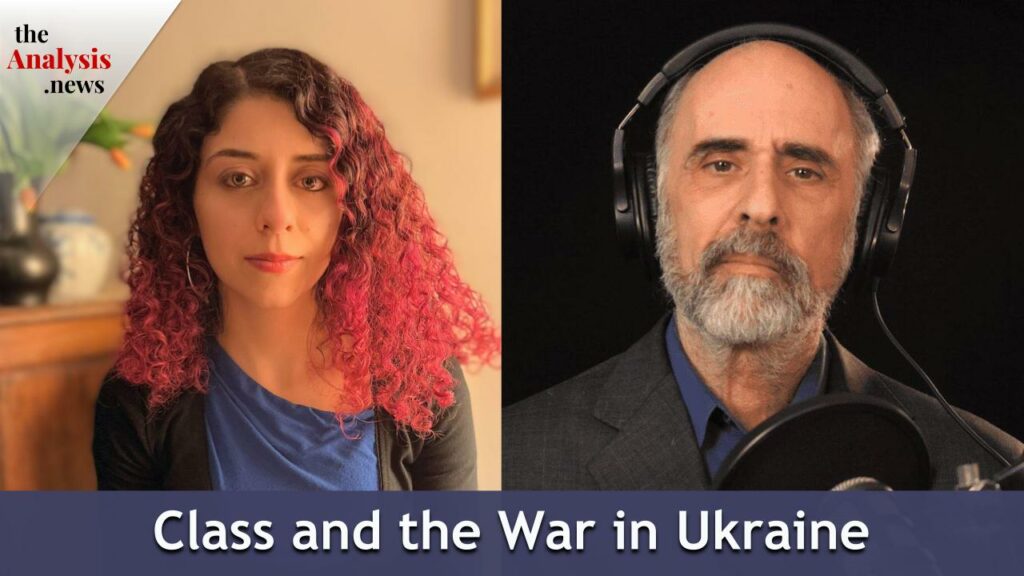
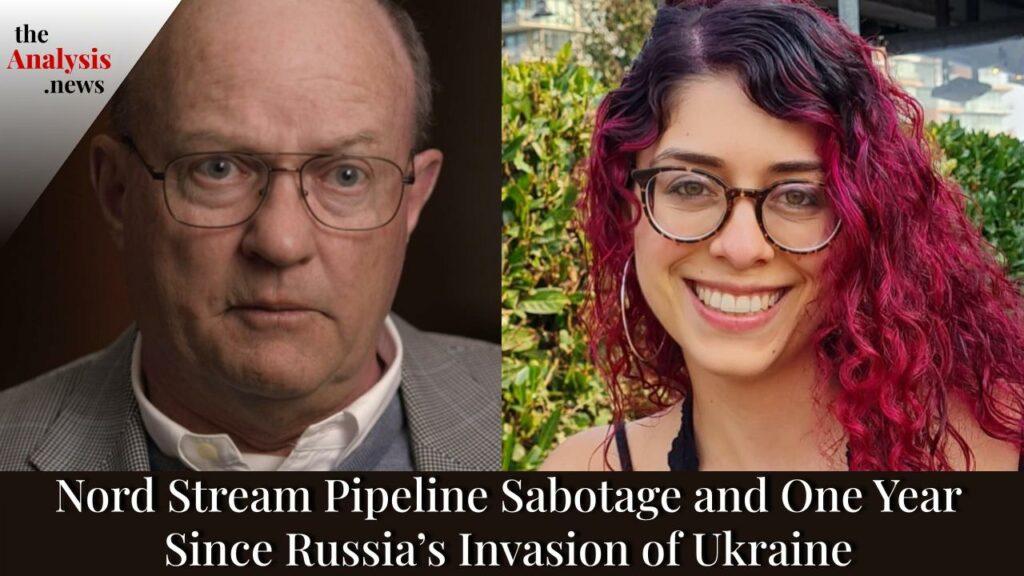
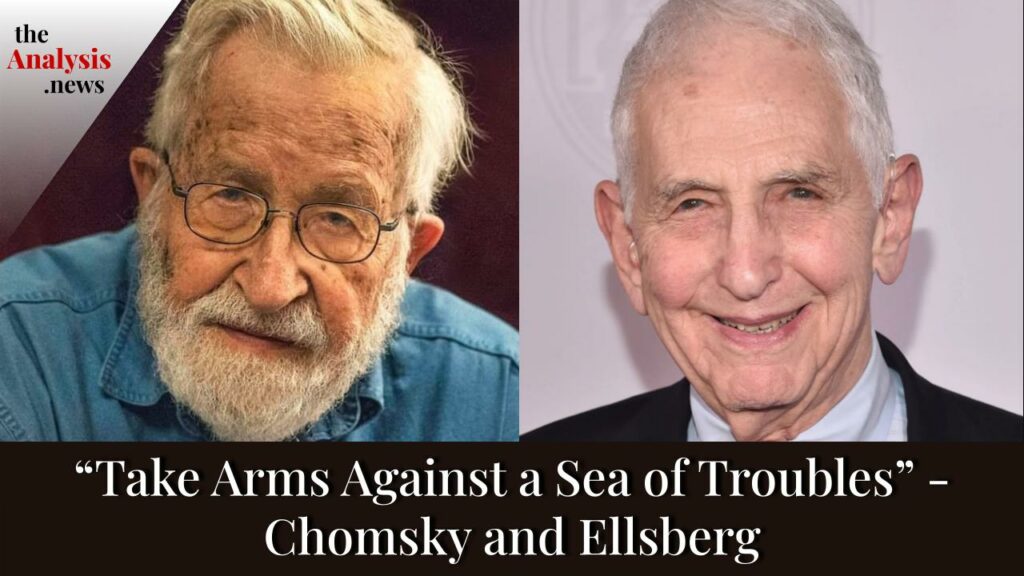
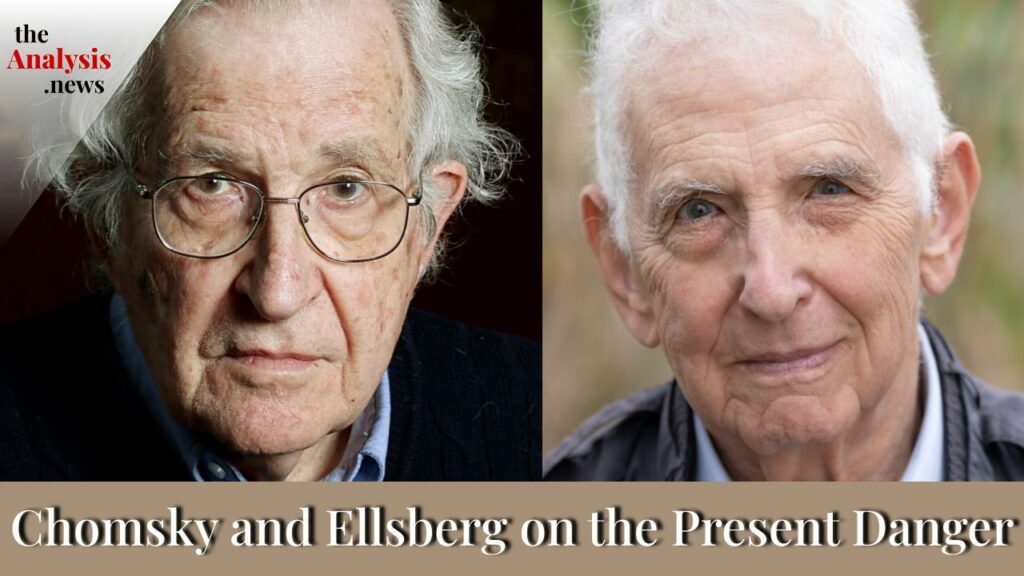
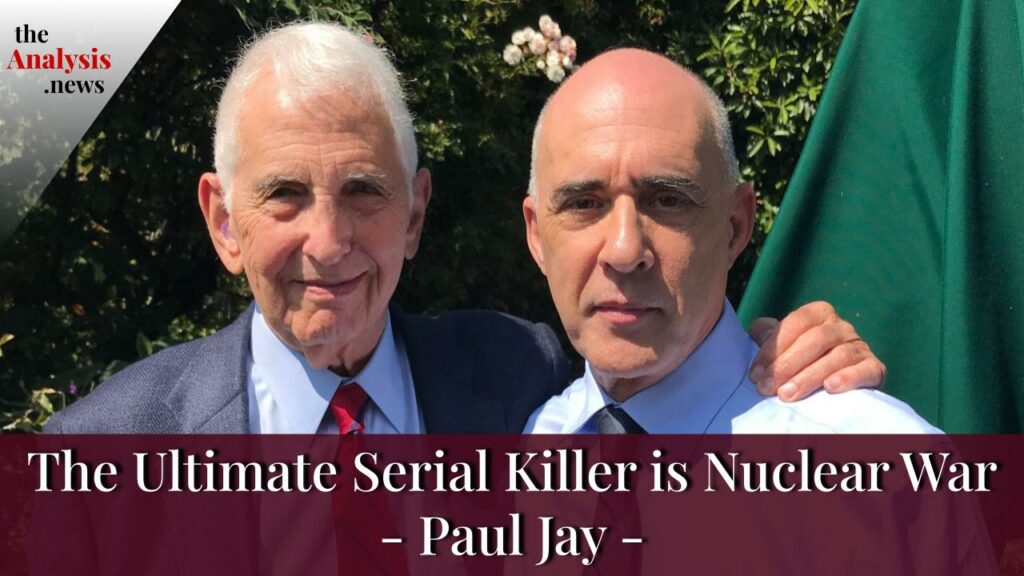

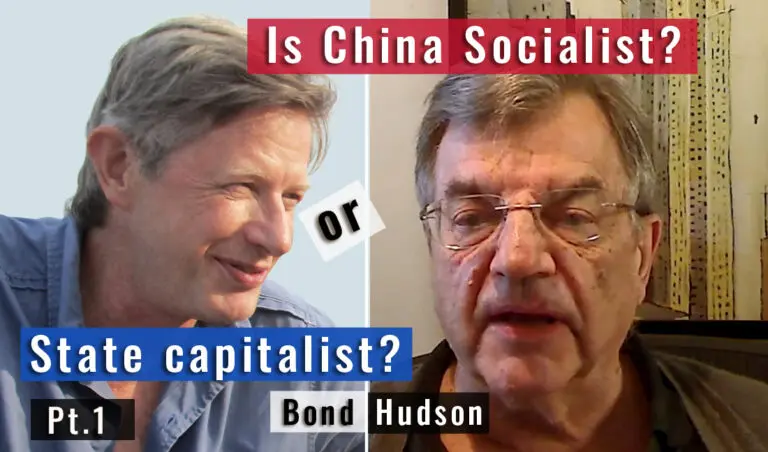
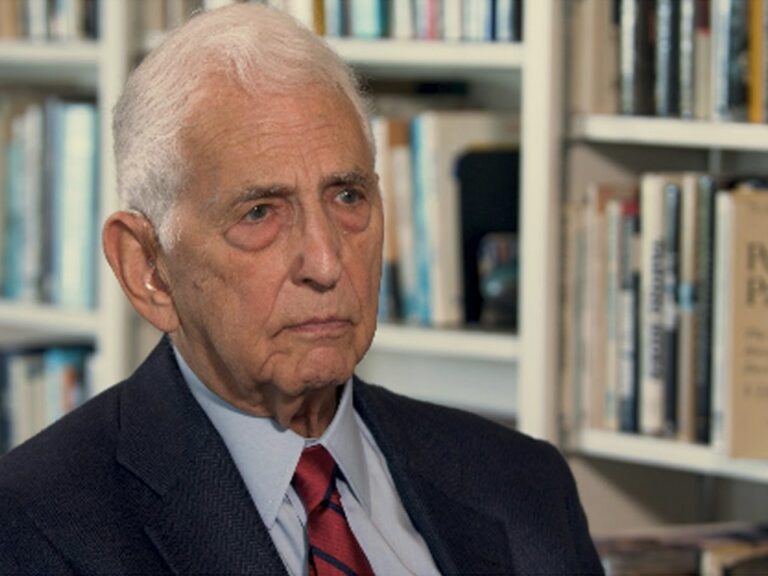
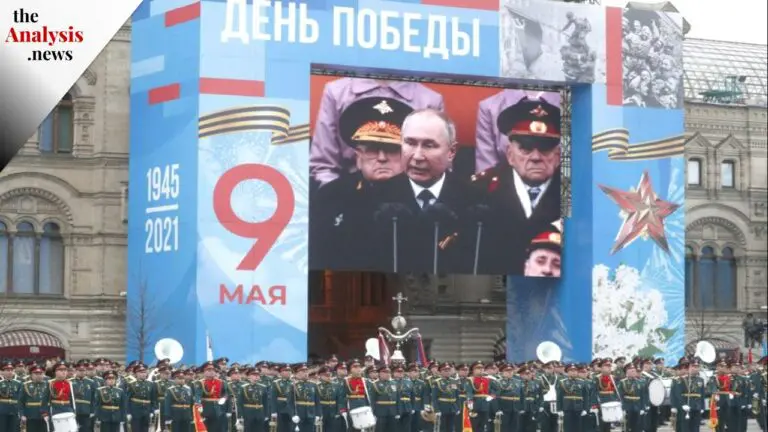
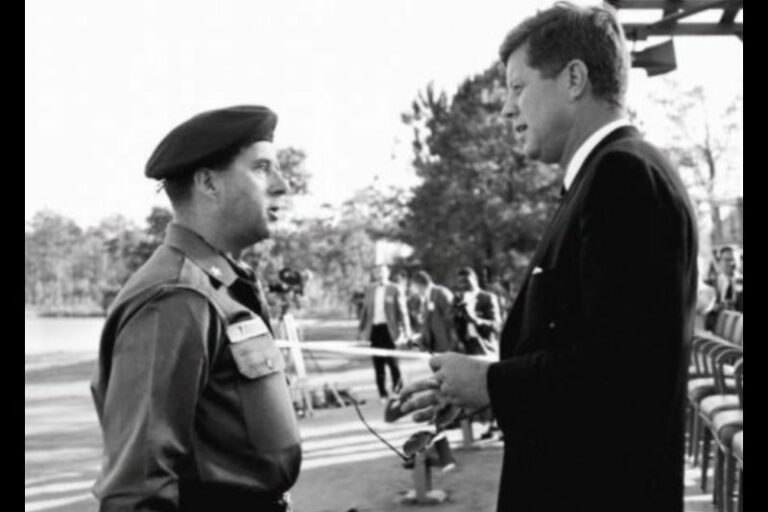
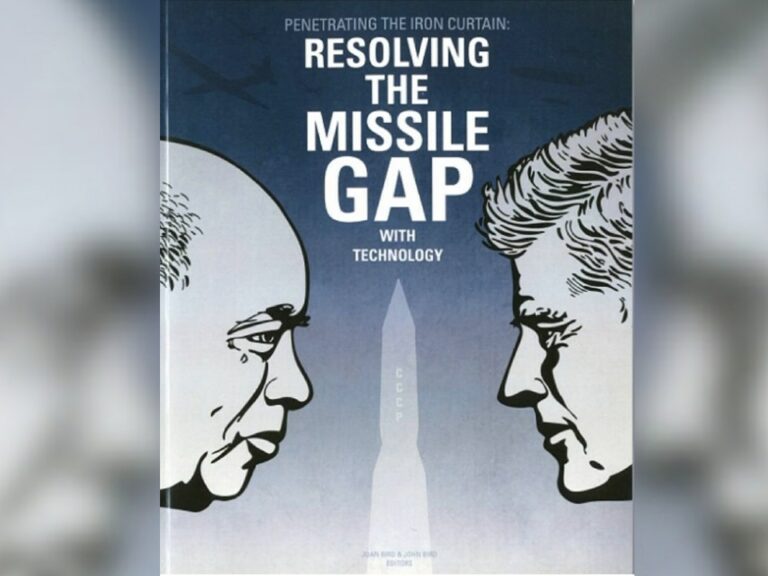

Legally, I condemn the Russian intervention as a criminal act according to U.N.’s foundational laws. War remains the supreme international crime.
Tactically, I understand that USA starves/provokes rival countries into taking the first military move as a “gotcha” and tries to destroy them – including funding prolonged proxy wars driven by right-wing fanatics. In realpolitik, Russia has said Ukraine is their existential red-line and it is up to NATO to respond to that.
Historically, I know that the Anglo-American Empire has been trying to destroy Russia since the late 1700s and that Eastern European is riven by ethnic-nationalist hatreds (which the Anglo-American Empire both encourages and uses). No matter what happens Russia and Ukraine must live together.
Personally, I’m disgusted by the emotionalism of Western elites who are treating this with the same black/white & us/them simplicity as they treated the pandemic. When I heard the British Minister of War talking about “Putin going Full Tonto” I understood just how ugly ‘our’ side is.
My Historical Comparisons: “Poor Little Belgium” WWI propaganda; Soviet Invasion of Czechoslovakia; CIA’s crazy Bay of Pigs leading to the Cuban Missile Crisis; Project Cyclone’s “bear trap”; CIA use of World Anti-Communist League; 2008 Russo-Georgian War; the Ignatieff/Canadian R2P doctrine, the 2014 Ukraine coup and subsequent neoliberal shock therapy; the loss of Afghanistan in 2021 and the US need for a new shadowy “failed state” zone.
Thanks for trying to sort out a “leftist” opinion on this!
To add to my earlier comment, your guest emphasized ending the war, and I think the hope lies with the Ukrainian people. I’ve commented elsewhere that Ukraine is an analogy for the future of the US: the far-right, nationalist movement has infected the military, and controls the govt through fear. Yet, even if the US and the neo-nazis want perpetual war with Russia, the Ukrainian people, like they have done before, may get tired of the corruption and rise up to force their gov’t to negotiate peace. This is especially true if Russia’s objectives are limited to controlling the Donbas and a land corridor to Crimea.
Your comments offer more insight and clarity than most of recent guests, repeating the same old thoughtless conventional thinking talking points.
Hi Paul, couple of quick points:
Ukraine IS part of NATO. Not as a member state, but as a client state. Read “Article 5”. It’s a joke. There’s nothing in there that has any legally binding requirement to be sending troops to defend any fellow member. If Ukraine was somehow a member, the response to a Russian invasion would probably look exactly the same as it does now. The Benghazi rebels who promised France 35% of Libyan oil in return for help overthrowing Qaddafi weren’t a member of NATO. But they were given control of NATO as their airforce, literally able to call in their own airstrikes. A signature on a piece of paper saying “membership” means nothing. It’s the metal that matters.
Secondly, Russia totally misjudged what they were walking in to. They thought the population would allow them to go in, get rid of the ultras (Azovs etc) who were undermining the will of the rest of the population (with Western support), and stroll back out again. Russia didn’t see the majority of Ukrainians as “the enemy”. Arming Ukrainians against Russia has turned them into one. Russia should not have entered Ukraine, and neither should they be kept in Ukraine.
The reporting and analysis I trust (e.g. Alexander Mercouris) do not suggest any misjudgment by Russian leaders, Pres Putin or his advisers, of the operation’s progress, as western sources try to persuade us. The Russian goals have been limited from the outset, and the tactics never included the “shock and awe” used by the USA to obliterate cities. Targets have been limited to avoid civilian casualties as much as possible. If Zelenskyy had negotiated in good faith, the Russians would have made peace on the basis of a land connection to Crimea and the indepedence of the Donbas breakaway republics. Zelenskyy’s servitude to the demands of the USA will result in greater losses to Ukraine along the Black Sea, now possibly all the way to Moldova.
The national security state needs a new graft, Biden needs to keep them happy now that he made them very mad by pulling out of Afghanistan. He needs to get back in their good graces. Like everything it’s all about the inside baseball of US domestic politics, inflicting the world in a capricious manner. I wonder if they actually want to create violent right wing insurgency akin to the right wing Islamist version they have in the middle east? Maybe that’s what they want. After all we know the US cultivated all of the remaining fascists forces out of their base in Munich, with the remnants of the NAZI security services. That’s were Bandera went, until he was rightfully assassinated by Soviets right under the US’s nose.
Hi Paul,
It’s a good idea to have interviews with western Ukrainian activists, but I found from your previous interviews that they centered their comments on Russia, and not the role of the US military-industrial complex, nor the role of the far-right, nationalist forces in the Ukrainian govt and military. Please push your interview subjects, to challenge their bias and any possible context they are avoiding. It’s probably also a good idea to interview a native activist or journalist from the Donbas region, such as Anne-Laure Bonnel, a French journalist who lived in the region after 2014.
I agree with you that’s it easy, from the comfort of my home, to comment on the life and death struggle of the Ukrainian people: in their place I would likely feel the same, that the US and Russia are imperial powers, and desire freedom from both.
…
From what I know about this struggle, I do not think the US nor the Ukrainian neo-nazis will allow Zelensky to make peace with the Russians. If there is a mistake the Russian govt has made, it is not realizing the US would supply Ukraine with arms to prolong the war indefinitely. Can the Russians force the Ukrainians to sue for peace? The Russian military, as long as it rules the skies, can dominate eastern Ukraine, and perhaps force a buffer zone between east and west Ukraine, but the US can always supply Ukraine from the west.
…
I would offer that the peculiar ability of modern govts to divorce the wars from their own citizens is what allows conflicts like this and the War on Terror to take place. I’ve never been threatened with a military draft, and my govt can print money to invest in the arms trade if it wants to. My neighbors can go about their private lives without even thinking about the wars and atrocities their govt can aid and abet.
Imperialism will be blunted when the the US is forced to deal with domestic economic and political crises, such as the fallout from inflation, its own far-right movements and climate change.
My understanding not as an historian but as a lay reader is that the powers that precipitated WWI were not anti-British as Mr Godel seems to say, or at least were not principally motivated by such animus, except perhaps the Kaiser’s Germany. Serbia, for example was principally motivated by its antagonism towards Austria, but was not behind the assassination of the Archduke. That was the work of a terrorist group beyond Serbia’s control. Austria, however, went to war against Serbia – not for any reasons having to do with Britain but simply to punish Serbia. Russia went to Serbia’s support for no reason related to Britain but out of obligation to its Slavic friend. I found Godel’s exposition too directed at establishing capitalism as the root of imperialism. I think the latter has a far more ancient presence than capitalism. As I have written earlier, imperialism has its roots in immorality, that is doing to others what one would certainly not want done to us. That has been part of the human heritage far longer than capitalism.
Austria went to war against Serbia because Serbia had been resisting Austrian expansion. IIRC, the top adviser who was against a Serbian invasion had died, leaving tho most pro-Serbian subjugating voice advising the emperor at the time of the assassination of his son – who he did not like anyway! The assassination was an excuse to have a war that they desperately wanted anyway. Without the assassination, it likely would have happened shortly after anyway (IMO).
Greg Godels tell us that imperialists, whether US or in a mult-polar in a capitalist setting, produce the terrible consequences of imperialism.
My view is that whether mono- or multi-polar, the first people to be colonized are the people of the imperial country. For example, the Soviet Union, though not a capitalist country, subjected and suppressed its own people as badly as any imperium has done to foreigners. The United States has, in a softer gloved way, made Americans its imperial subjects, rather than its democratic citizens. The point I make is that all power centers, capitalist or not, are power hungry and greedy. The consequences of imperialism are not a political problem. They are a moral problem. People are by nature power hungry and greedy. Capitalist and Marxist leaders are equally likely to produce imperialism. In the case of the Soviet Union, the imperialism was confined to home, because of geopolitical circumstances that did not allow it to project power. The United States has found imperialism abroad not so restricted. Imperialism is a moral disease, not one dependent on the politics of capitalism.